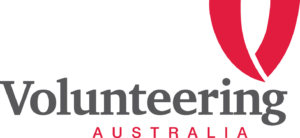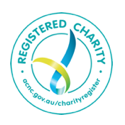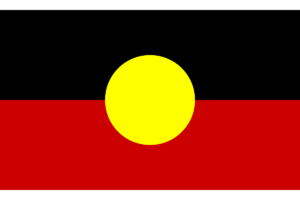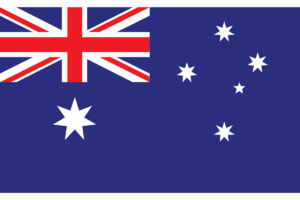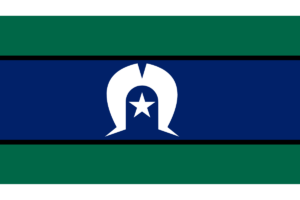Aboriginal and Torres Strait Islander peoples have practiced reciprocal community care, cultural obligation, and kinship-based giving for tens of thousands of years. These enduring systems of support are deeply rooted in connection to Country, culture, and community.
These forms of contribution often extend beyond what is captured by mainstream definitions of ‘volunteering’, which tend to reflect structured, Western models. At Volunteering Australia, we recognise that a fuller understanding of giving must embrace the diverse and culturally grounded ways people care for and support one another.
As outlined in the National Strategy for Volunteering, we are committed to “diversify the understanding of volunteering and promote the wide range of ways people contribute to community” (Strategic Objective 2.1).
We are listening and learning from First Nations communities to understand how community giving is defined, practiced, and supported in different contexts.
Where We’re Listening and Learning
We acknowledge that our current understanding is still growing. Our Reconciliation Practice Group is temporarily on pause, and we are reflecting on how to reshape this space to ensure it is culturally safe, respectful, and community-led.
We’re working toward re-establishing this group as a Yarning Circle, where Aboriginal and Torres Strait Islander peoples guide the conversation about volunteering, community giving, and systems change.
The National Strategy for Volunteering “recognises and respects Aboriginal and Torres Strait Islander peoples’ unique ways of knowing, being, and doing and the value of volunteering that is embedded in these practices”.
What We’re Doing
Volunteering Australia and our State and Territory peak bodies are working in partnership with governments and community stakeholders to create policy settings that recognise and support First Nations contributions.
Volunteer Management Activity Redesign
We are collaborating with the Australian Government on redesigning the Volunteer Management Activity (VMA) to ensure it is inclusive and culturally responsive. This includes:
- Prioritising First Nations leadership and participation
- Supporting flexible, community-led volunteering models
- Embedding cultural safety and local context in program design
Reconciliation Action Plans (RAPs)
Volunteering Australia and each State and Territory peak body are working with Reconciliation Australia to develop or review our RAPs. These plans:
- Guide our reflection on structural barriers to participation
- Help shape more inclusive and respectful engagement
- Commit us to real, measurable change within our organisations
Read our Reconciliation Action Plan
Volunteering Australia is currently involved in the Innovate Stage of our RAP
National Strategy for Volunteering
The National Strategy for Volunteering (2023–2033) places inclusion and equity at its core. It envisions a future where:
“Volunteering will be inclusive and accessible to all, and informed by the lived experience of diverse communities.” (Vision statement)
We are embedding these principles by:
- Ensuring First Nations voices are represented in national conversations
- Supporting the diversification of volunteering definitions
- Advocating for culturally responsive volunteering infrastructure
Ongoing Commitment
We understand this work is ongoing. It requires deep listening, relationship-building, and cultural humility. We are committed to working in partnership with First Nations peoples to ensure that volunteering, in all its forms, is inclusive, meaningful, and community-led.

Share Your Perspective
We’re currently deepening our understanding of how First Nations communities define community giving, cultural contribution, and service to others.
If you’d like to share your insights, reflections, or lived experience, we welcome you to complete our Community Giving Inquiry Form. This is part of a longer journey of listening – not a research project, but an invitation for honest connection.
*Please note that this form will be unavailable from Friday 9 January 2026 until the website upgrade is completed*
Reconciliation Practice Group – What’s Next?
Our Reconciliation Practice Group is currently on pause as we reflect on how to create a more culturally safe and community-led space for this work to continue.
We’re committed to re-establishing this group as a respectful Yarning Circle, where Indigenous voices guide the conversation about volunteering, community giving, and cultural strengths.
We’ll share more when this group is ready to launch. If you’re interested in being part of this process, we’d love to hear from you.
Our Submissions and Policy Contributions
We continue to advocate for policies that remove barriers, respect cultural practices, and create meaningful pathways for participation. Below is a selection of our submissions related to this advocacy work:
Remote Engagement Program
Submission to the National Indigenous Australians Agency (NIAA)
Advocated for First Nations volunteering to be central to program design and recognised as a meaningful pathway to economic participation.
Indigenous Skills and Employment Program
Highlighted that cultural obligation and reciprocity are integral to First Nations community life, and recommended a co-design approach grounded in self-determination.
Indigenous Voice to Parliament
Supported measures to elevate First Nations voices in policy, grounded in the context of the Uluru Statement from the Heart and the call for constitutional recognition.
Pathways to Economic Inclusion Inquiry
Called for a multifaceted strategy that includes volunteering as a pathway to employment, and emphasised the need to expand culturally safe volunteering opportunities.
Resources and Further Reading
We also encourage learning from First Nations-led organisations and initiatives. Here are some starting points:
- Reconciliation Australia
- Australian Institute of Aboriginal and Torres Strait Islander Studies
- Common Ground
Contact Us
If you’d like to be involved in future conversations or the development of our Yarning Circle, please contact us at: hello@volunteeringaustralia.org
Volunteering Australia acknowledges the Traditional Custodians of the many lands across the country on which we live, work, and volunteer. We pay our respects to Elders past and present.
